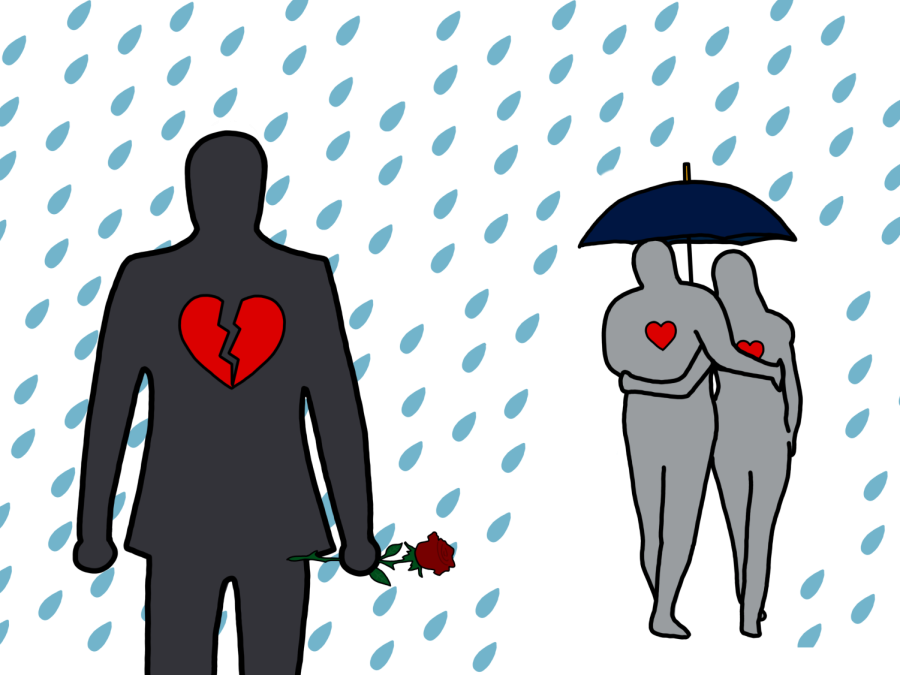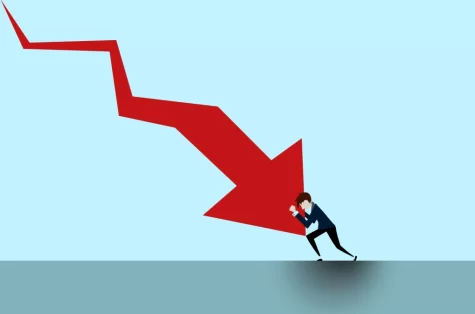Cheating: the worst betrayal in a relationship
Another February has come and passed, and with it another Valentine’s Day, bringing with it the couple’s posts capturing two people hopelessly in love. Despite many people’s adoration of Valentine’s Day, it is a performative holiday. A majority of relationships will end within their first year of dating. And the leading cause of all romantic relationships ending is consistently infidelity, with it being the cause of an estimated 70% of married couples separating. With cheating being so common, what do you do in the face of cheating?
Cheating on a partner is morally wrong. The reasoning does not matter. Cheating on a partner is breaking the trust, loyalty and feelings that have been built throughout the relationship, and at the end of the day is the ultimate romantic betrayal. When trust is broken like that, it is incredibly hard to reconcile, bordering impossible. Taking back a cheater is never worth it, how can you trust them again after that? A relationship should always have trust, and integrity from both partners, and cheating shows that the trust has been broken and there is no going back.
Cheating is a bad thing to do. It is immoral. Cheaters do not value their romantic relationships, or at least not enough to be honest to their partners. The base for all relationships is trust and loyalty. Romantic, but platonic as well. If someone cheats on their partner, it proves that they have no respect for any of their relationships, or people they claim to love.
If a cheater begs to be taken back, that doesn’t mean they’ve changed. It just means that they are desperate. Human beings need connection. We crave love. Cheaters don’t love enough, but they still expect that love in return.
More often than not, people who cheat are not good people. It is almost an entirely selfish act, putting your wants above the person you are supposed to love. Of course there are exceptions, but protecting your partner’s feelings is not a good reason. It is just an excuse used by people who do not want to face the consequences.
If you stand by a cheater, you are enabling them and, in turn, directly or not, condoning their actions. Yes, we are responsible for our own actions, but choosing to support someone is still a choice. If we as a society choose to condemn cheating, we cannot concurrently continue standing by people who choose to cheat. The same goes for taking back a partner. It only further encourages behavior, instead of teaching people that their actions are wrong.
Love affairs are often romanticized as a beautiful thing hidden away from the world while an evil jealous partner lurks around the other side. However, what that stereotype often fails to portray is that the evil jealous partner is a person too, and furthermore really the most victimized in the whole relationship. It is primarily the fault of the cheating partner of course, but blame can fall onto the cheater’s lover as well, if they knew.
Infidelity tears apart friendships, lovers. and even families, and supporting the kind of behavior causes only teaches young kids that it is okay. In order to learn, there have to be repercussions, and people who cheat have to realize that. Unfortunately, as people continue to support and perpetuate it, the culture of cheating will never change.














Ricardo C. ~ Sep 17, 2024 at 7:36 pm
Very well Said.